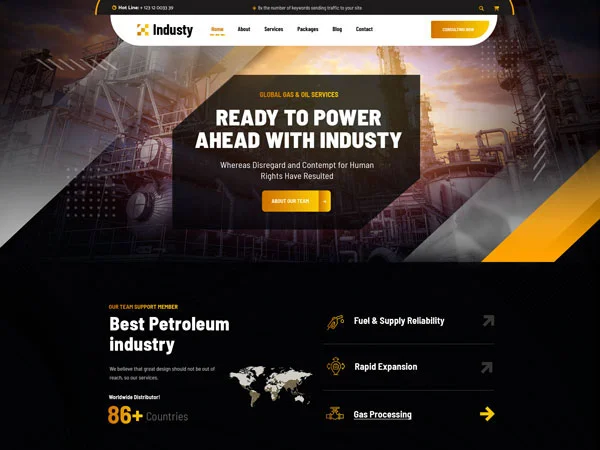Shifting Ground Navigating Current Affairs and the latest news impacting global markets.
- Shifting Ground: Navigating Current Affairs and the latest news impacting global markets.
- Geopolitical Shifts and Their Economic Repercussions
- Global Inflation and Monetary Policy Responses
- The Role of Supply Chains
- Impact on Consumer Spending
- Technological Disruption and Innovation
- Emerging Market Dynamics and Investment Opportunities
- Considerations for Investing in Asia
- Investment Opportunities in Latin America
- Navigating a Complex Global Landscape
Shifting Ground: Navigating Current Affairs and the latest news impacting global markets.
In an increasingly interconnected world, staying informed about current affairs is paramount, not only for personal understanding but also for making sound decisions in various aspects of life – from financial investments to political engagement. The constant flow of information, however, can be overwhelming. Discerning credible sources and understanding the complex interplay of global events requires a dedicated effort. Analyzing the latest news impacting global markets is vital for both seasoned investors and those new to the financial landscape. It’s about recognizing trends, understanding risks, and capitalizing on opportunities.
This article delves into the significant factors currently shaping the global economy and political climate, providing a comprehensive overview of the key developments and their potential consequences. We will explore the influence of geopolitical tensions, economic indicators, and emerging technologies, equipping you with the knowledge to navigate an ever-changing world. Our focus is on delivering insightful analysis and practical information, enabling you to remain well-informed and prepared for whatever lies ahead.
Geopolitical Shifts and Their Economic Repercussions
Geopolitical instability remains a significant driver of economic uncertainty. Conflicts and tensions in various regions disrupt supply chains, escalate energy prices, and trigger risk-off sentiment among investors. The ongoing situation in Eastern Europe, for instance, has had far-reaching consequences for global energy markets and food security. Beyond direct economic impacts, geopolitical risks also necessitate increased defense spending, diverting resources from other crucial areas such as infrastructure and education. Understanding these dynamics is crucial for assessing investment opportunities and mitigating potential losses.
Furthermore, shifts in the global power balance – the rise of emerging economies and the evolving relationships between major players – are reshaping the international landscape. These changes create both challenges and opportunities for businesses and investors. Adapting to this new reality requires a nuanced understanding of the political, economic, and cultural factors at play in different regions.
The intensifying competition between major global powers, particularly regarding technological advancements, adds another layer of complexity. This competition often manifests in trade disputes, sanctions, and restrictions on technology transfer, all of which have economic implications. Businesses need to navigate these challenges carefully to maintain competitiveness and access key markets.
| Eastern Europe | Ongoing Conflict | Energy Price Volatility, Supply Chain Disruptions |
| South China Sea | Territorial Disputes | Trade Route Disruptions, Increased Military Spending |
| Middle East | Political Instability | Oil Price Fluctuations, Regional Conflicts |
| Africa | Political Instability | Resource Price Fluctuations, Supply Chain Disruptions |
Global Inflation and Monetary Policy Responses
One of the most pressing economic concerns globally is persistent inflation. While initially attributed to supply chain disruptions stemming from the COVID-19 pandemic, inflation has proven to be more persistent than many central banks anticipated. Factors such as strong consumer demand, rising energy prices, and labor shortages continue to contribute to inflationary pressures. This has prompted central banks worldwide to adopt tighter monetary policies, including raising interest rates and reducing their balance sheets.
The impact of these monetary tightening measures is already being felt across economies. Higher interest rates increase borrowing costs for businesses and consumers, dampening economic activity. This can lead to slower growth and potentially even recessionary conditions. However, the alternative – allowing inflation to run rampant – is equally undesirable, as it erodes purchasing power and creates economic instability.
The challenge for central banks is to strike a delicate balance between curbing inflation and avoiding a severe economic downturn. This requires careful monitoring of economic indicators, clear communication with markets, and a willingness to adjust policy as needed. The effectiveness of monetary policy in tackling inflation is also contingent on other factors, such as fiscal policy and global economic conditions.
The Role of Supply Chains
The resilience of global supply chains has become a central focus amidst the inflationary environment. The disruptions caused by the pandemic exposed vulnerabilities in existing supply chain networks, leading to shortages and price increases. Companies are now actively seeking to diversify their supply sources, build up inventory buffers, and invest in more resilient logistics infrastructure. Geopolitical risks are contributing to this change, as nations reassess their dependence on specific countries for critical goods and materials. This process of restructuring supply chains is a complex and costly undertaking, but it is essential for mitigating future disruptions and enhancing economic security. Strong consideration is being given to regionalization to reduce reliance on long-distance trade. This involves establishing production facilities closer to end markets, though it does present specific, unique challenges regarding labor costs and expertise. Ultimately, the move to more resilient supply chains is a structural adjustment with long-term implications for global trade patterns.
Impact on Consumer Spending
Inflation impacts consumers profoundly and has a direct effect on consumer behaviour. As the cost of essential goods and services rises, disposable income decreases, leading to changes in spending patterns. Consumers are forced to prioritize needs over wants and seek out more affordable alternatives. This shift in consumer spending can have a ripple effect throughout the economy, impacting various sectors. Retailers, particularly those offering discretionary items, often experience a decline in sales. Similarly, hospitality and tourism industries can also suffer as consumers reduce their discretionary spending. The Canadian Bureau of Statistics recently published data showing an unforeseen decline in retail sales due to decreased consumer confidence. This trend underscores the importance of closely monitoring consumer sentiment for indications of changes in spending habits. Businesses must adapt accordingly by offering promotions, discounting and seeking innovative ways to provide value.
Technological Disruption and Innovation
Rapid technological advancements continue to reshape the global economy, creating both opportunities and challenges. Artificial intelligence (AI), machine learning, and automation are transforming industries, increasing productivity, and generating new business models. However, these technologies also raise concerns about job displacement and the need for workforce retraining. The rise of the digital economy is also creating new regulatory challenges, particularly in areas such as data privacy, cybersecurity, and antitrust.
Investing in research and development, fostering innovation, and ensuring equitable access to technology are crucial for harnessing the benefits of technological disruption. Governments and businesses alike need to create ecosystems that support entrepreneurship, promote digital literacy, and address the ethical considerations surrounding emerging technologies. Successful navigation of this landscape requires adaptability and a foresightful approach.
The proliferation of digital currencies and blockchain technology represents another significant development. Although still in their early stages of adoption, these technologies have the potential to disrupt traditional financial systems and create new avenues for investment and commerce. However, they also pose significant regulatory and security risks that need to be addressed.
- Artificial Intelligence (AI): Automation, data analysis, and personalized experiences.
- Blockchain Technology: Secure transactions, supply chain traceability, and digital currencies.
- Biotechnology: Advancements in healthcare, agriculture, and environmental sustainability.
- Renewable Energy Technologies: Solar, wind, and energy storage solutions.
Emerging Market Dynamics and Investment Opportunities
Emerging markets continue to offer significant investment opportunities, driven by rapid economic growth, rising middle classes, and favorable demographics. However, investing in emerging markets also carries inherent risks, including political instability, currency fluctuations, and regulatory uncertainty. Careful due diligence and a long-term investment horizon are essential for navigating these challenges.
Countries like India, Indonesia, and Brazil are attracting increasing amounts of foreign investment, fueled by their large populations, growing economies, and expanding consumer bases. These markets offer diverse opportunities across a range of sectors, including infrastructure, technology, and consumer goods. However, investors need to be aware of the specific risks associated with each market and tailor their investment strategies accordingly.
The COVID-19 pandemic has also highlighted the importance of diversification. Investors with well-diversified portfolios were better positioned to weather the storm and capitalize on opportunities that arose during the crisis. Looking forward, it is likely that emerging markets will continue to play a crucial role in the global economy, offering both risks and rewards for investors.
Considerations for Investing in Asia
Asia, encompassing both well-developed economies like Japan and South Korea and rapidly developing nations like Vietnam and the Philippines, offers investors unique opportunities and challenges. China, despite recent economic headwinds, remains a key player, albeit with increasing regulatory oversight and geopolitical risk. Investors must carefully assess the political and regulatory landscape in each country before committing capital. The push for green technologies is creating a wealth of opportunities, particularly in renewable energy and electric vehicle sectors. However, currency fluctuations and trade tensions present ongoing risks. Understanding cultural nuances and building strong local partnerships are also critical for success in Asian markets. Diversification across various Asian countries is vital to mitigate the effects of country-specific shocks. Growth in consumer spending, driven by expanding middle classes, is also a primary driver for investment in Asian economies. This expansion in demand is particularly notable in the e-commerce and entertainment sectors.
Investment Opportunities in Latin America
Latin America presents a diverse range of investment opportunities, ranging from resource-rich countries like Brazil and Chile to rapidly growing economies like Mexico and Colombia. The region’s abundant natural resources – including minerals, oil, and agricultural products – offer attractive investment potential. Political instability and economic volatility remain significant concerns, however. The recent election cycles in several key Latin American nations – Argentina, Brazil, and Colombia – have introduced new uncertainties that require careful consideration. Investment in infrastructure development, particularly in transportation and energy sectors, is vital for enhancing the region’s long-term economic growth. Opportunities also exist in the renewable energy sector, driven by the region’s abundant solar, wind, and hydropower resources. The rise of fintech companies and the expansion of digital infrastructure in Latin America are creating new investment prospects.
Navigating a Complex Global Landscape
The global economic and political landscape is undoubtedly complex and uncertain. Staying informed, adapting to change, and making sound decisions requires a multi-faceted approach. Understanding the interplay of geopolitical risks, economic indicators, and technological advancements is essential for navigating this challenging environment. Diversification, careful risk management, and a long-term investment horizon are crucial for achieving sustainable success.
By remaining vigilant, informed, and proactive, individuals and businesses can not only weather the storms but also capitalize on the opportunities presented by a rapidly evolving world. Continuous learning and adaptation are no longer optional—they are essential for survival and prosperity.
- Stay informed about latest news and economic developments.
- Diversify your investments across different asset classes and geographies.
- Manage risk through hedging and other strategies.
- Embrace innovation and invest in emerging technologies.
- Maintain a long-term perspective and avoid impulsive decisions.







